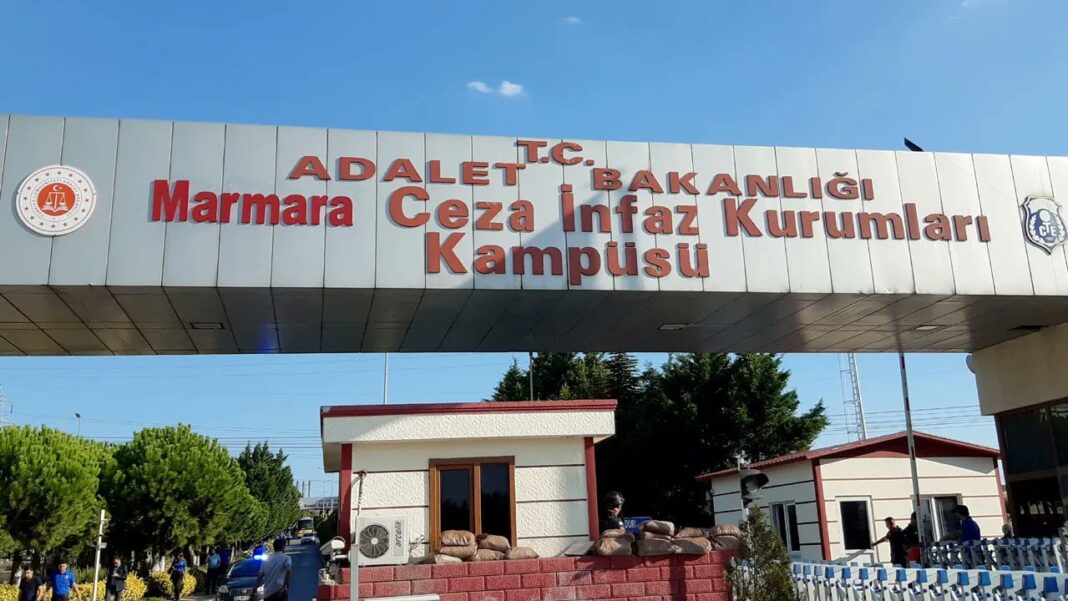Three prison guards were suspended after allegations emerged that they had cut off the headscarves of female activists jailed over their protest against Turkish President Recep Tayyip Erdoğan for continuing trade with Israel despite Ankara’s claims of an embargo over Tel Aviv’s military actions in Gaza, the BirGün daily reported.
The activists, who were among nine people arrested after a protest at the TRT World Forum in İstanbul on November 29, were accused of disrupting Erdoğan’s speech and charged with “insulting the president” and unlawful assembly. Seven of those arrested were women who were transferred to İstanbul’s Marmara Women’s Prison.
The allegations were first brought to light by Alev Sezen, vice chair of the Islamist opposition Felicity Party, who said the women’s headscarves were cut off to the point where their hair was exposed. “They were left with headscarves the size of handkerchiefs, which did not even meet the most basic requirements of modesty,” Sezen said and described the act as a deliberate affront to their religious beliefs.
The General Directorate of Prisons and Detention Centers issued a statement acknowledging the allegations and confirming that both administrative and judicial investigations had been launched. The Bakırköy Chief Public Prosecutor’s Office is leading the investigation, while three correctional officers involved in the incident have been suspended for the duration of the investigation.
On Friday main opposition Republican People’s Party (CHP) MP Umut Akdoğan along with other CHP lawmakers visited the detainees and revealed troubling accounts of their treatment.
Akdoğan said the detainees also showed signs of physical abuse and were deprived of food and water for up to 16 hours. He condemned the treatment as inhumane and unacceptable and emphasized that such measures violate fundamental rights and freedoms.
“The claim that the headscarves were cut off to prevent self-harm is absurd. Such actions are unacceptable, and those responsible must be held accountable. It is not enough to suspend three guards; the entire system that enables such behavior must be called into question,” Akdoğan was quoted as saying by the Gazete Duvar news website.
Among those detained are students and academics, including Mücahit Özel, a university student; Gülşah Eldemir, an artificial intelligence expert; and Fatma Dilara Gezmişoğlu, a math teacher. Akdoğa pointed to their different backgrounds to underline the arbitrariness of their detention, saying, “These are not criminals, but people exercising their democratic rights.”
Akdoğan claimed that the detainees were forced to use products they morally oppose, including goods from companies accused of supporting Israel. “For those who support the Palestinian cause, it is unacceptable to be forced to use these products,” he said.
The incident involving the mistreatment of headscarved female activists in Turkish prisons highlights a contradiction in the image that President Erdoğan has carefully cultivated over his two decades of rule. He is credited with lifting long-standing headscarf restrictions in Turkey and being the first Turkish president to publicly and vocally criticize Israel on the international stage. These actions have strengthened his reputation as a champion of religious freedom and an advocate for oppressed Muslims.
The treatment of these activists, who were jailed for protesting Turkey’s ongoing trade with Israel despite Erdoğan’s rhetoric of solidarity with Gaza, is destroying that image, critics say.



